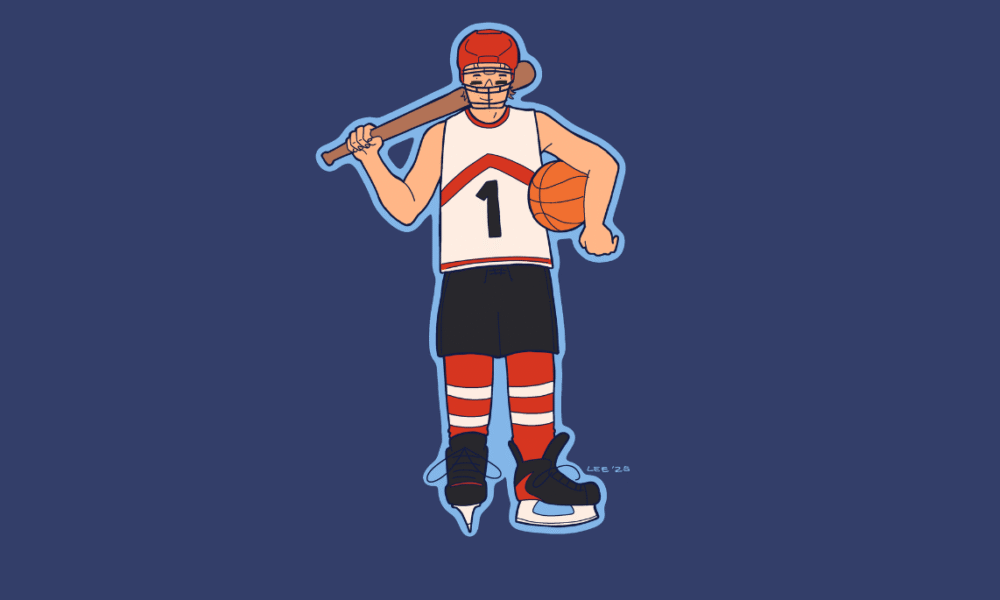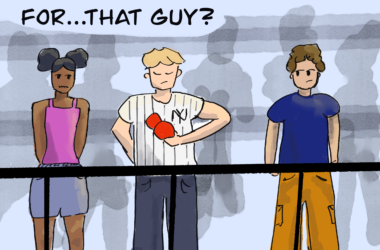Monday, Oct. 27, was a fever dream for sports fans. It was the kind of sporting sensory overload where four screens and a personal highlight-curator were necessities. For only the 32nd time in history, the sports equinox commandeered living rooms and sports bars across North America. The National Football League (NFL), National Basketball Association (NBA), National Hockey League (NHL), and Major League Baseball (MLB) all shared the same stage, each fighting for attention in one of sports history’s most crowded nights.
The evening began with a bang in the NFL’s Monday Night Football showdown, where the Kansas City Chiefs continued their mid-season surge with a 28-7 win over the Washington Commanders. Polarizing quarterback Patrick Mahomes reminded everyone why he is still the league’s leader for quarterback excellence, throwing for 299 yards and scoring three touchdowns. The Chiefs’ defense held Washington to just 260 total yards, a dominant display that represented their Super Bowl ambitions.
While Mahomes worked wonders on the gridiron, basketball fans were treated to an early-season spectacle in San Antonio. Victor Wembanyama, the NBA’s 2023-24 Rookie of the Year, posted 24 points and 15 rebounds as the Spurs slammed the Toronto Raptors 121-103. The 7-foot-4 phenom danced around the court with his fluid shooting and rampant defensive efforts, while Devin Vassell chipped in 15 points to secure the win. Raptors fans felt an all-too-familiar frustration at their team’s strategy: A dazed defensive response to Wembanyama’s versatility in the paint.
Then came the night’s main event: Game 3 of the World Series between the Toronto Blue Jays and the Los Angeles Dodgers. What began as a battle of the pitchers turned into a gruelling 18-inning marathon that ended in heartbreak for Toronto. The Dodgers ultimately prevailed 6-5, thanks to a walk-off home run from Freddie Freeman that broke a 5-5 deadlock after over six hours of play. Despite the loss, the Jays’ performance kept the series alive, with fans on both sides of the border glued to every pitch deep into the night.
Meanwhile, the NHL added its own two cents to the chaos. In Pittsburgh, the Penguins shelved the St. Louis Blues 6-3, with Sidney Crosby netting his 1,700th point to seal the deal for his team. Elsewhere, the Boston Bruins suffered a painful 7-2 loss at the hands of an overwhelming Ottawa Senators squad. The Senators’ offensive dominance was led by Drake Batherson and Tim Stützle with 2 goals apiece, while their intensive defensive effort was exemplified by goalie Leevi Meriläinen, who made 26 showstopping saves throughout the game.
What made Monday’s sports equinox so special was not just its variety. For any sports pundit, fan, or casual observer, it was the intensity across every sport that defined the night. From Mahomes’ clinical precision to Wembanyama’s coming-of-age performance, the Dodgers’ late-night resilience to Crosby’s timeless brilliance, fans experienced every possible emotion in one nonstop tidal wave of sporting highlights.
But the night also hinted at a new-age modern reality. With overlapping seasons, streaming exclusives, and wall-to-wall broadcasts, fans are increasingly forced to pick their battles. While this is a great problem to have, the once-rare overlap that defined the sports equinox is now a reminder of how crowded the sports calendar has become. It means that seasons stretch longer, off-seasons shrink exponentially, and networks compete fiercely for attention to provide fans with more time to indulge in their favourite sporting events.
Monday’s sports equinox will stand as a snapshot of why we watch sports in the first place—more than just for scores or standings, but for the chaos, the cacophony, and those fleeting moments in every game when it feels like the stakes just cannot get any higher.









